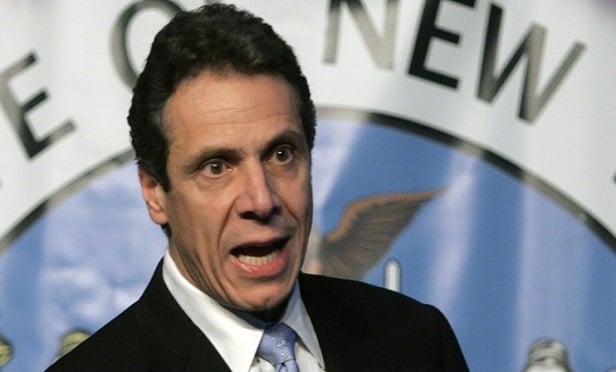
 Gov. Andrew Cuomo of New York. (Photo: AP)
Gov. Andrew Cuomo of New York. (Photo: AP)
The IRS on Wednesday put taxpayers on notice that at least one type of workaround to offset the new $10,000 limit on state and local tax deductions will likely not pass muster.
"Taxpayers should be mindful that federal law controls the proper characterization of payments for federal income tax purposes," IRS said in its guidance. The agency was referring to state programs or proposals that let taxpayers characterize payments for state and local government services as charitable contributions rather than taxes.
Under those schemes, taxpayers pay into funds controlled by state or local governments for purposes of paying state and local taxes and receive state tax credits as well as a federal tax deduction, as if those payments were a charitable contribution.
To date, New York state and New Jersey have both signed into law such programs. The New York state law also uses another type of workaround that essentially shifts some employee payroll taxes to employers if the employer volunteers for the program. The employers can deduct the additional payroll taxes, and the employees would receive a tax credit equivalent to the value of that deduction.
In its latest notice, the IRS said it intends to propose regulations on these tax workarounds which would "assist taxpayers in understanding the relationship between the federal charitable contribution deduction and the new statutory limitation on the deduction in state and local tax payments," which was capped at $10,000 in the recent tax overhaul legislation. That ceiling is what has prompted some high-tax states like New York and New Jersey to develop programs to essentially lift the $10,000 ceiling in other ways.



